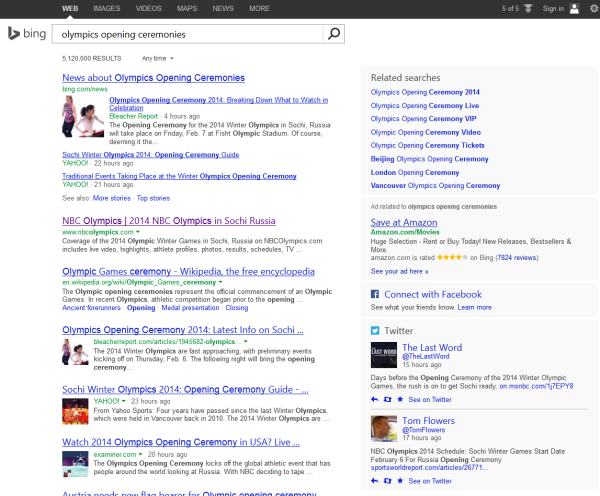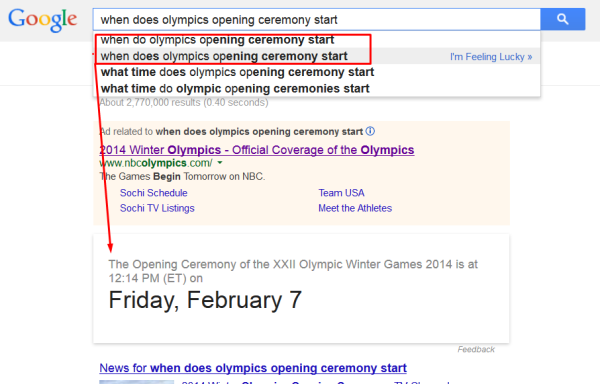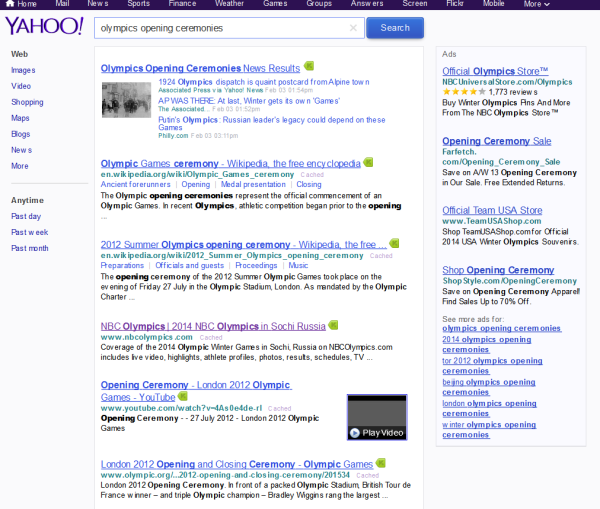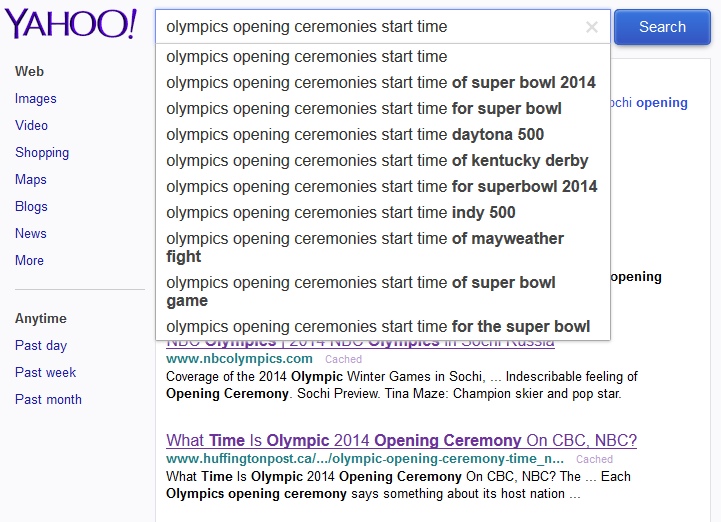“When Do The Olympics Opening Ceremonies Start?” Search Engines Compete To Answer
Who knew a simple question would be so hard to answer? Yesterday I searched across all three engines to find out more about the Olympic opening ceremonies and when they start. I quickly discovered that the official website of NBC, which is broadcasting the games in the U.S., had nothing about the ceremonies or when […]
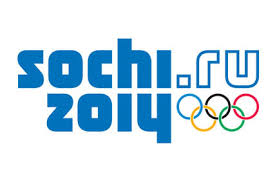 Who knew a simple question would be so hard to answer? Yesterday I searched across all three engines to find out more about the Olympic opening ceremonies and when they start. I quickly discovered that the official website of NBC, which is broadcasting the games in the U.S., had nothing about the ceremonies or when they’ll air in the States. So back to the search engines I went, chronicling my odd experiences along the way.
Who knew a simple question would be so hard to answer? Yesterday I searched across all three engines to find out more about the Olympic opening ceremonies and when they start. I quickly discovered that the official website of NBC, which is broadcasting the games in the U.S., had nothing about the ceremonies or when they’ll air in the States. So back to the search engines I went, chronicling my odd experiences along the way.
Oh, and to cut the suspense, the Opening Ceremonies happen at 12:14pm ET on Friday, Feb. 7, although in the US, NBC won’t broadcast them live, going with a recording 7:30 PM ET.
Here’s a look at how the three major search engines, Google, Bing and Yahoo, stacked up in this Olympic effort.
And The Gold Goes To: Bing
I’ll admit, Bing isn’t where I started my search, but it’s where I found the answer fastest. Bing displayed the most relevant results for my query, with each of the top three news results directly pertinent. The Bleacher Report article had what I was looking for. Note that the second and third links are from Yahoo sites.
I could also have found what I was looking for through the two posts provided by Bing’s Twitter integration. Bing did lose points for the in-no-way-relevant Amazon ad, but not enough to knock it out of first place. (Read more about what Bing has in store for the Olympics at the end of this article.)
The Silver As Awarded To: Google
I’m not sure why NBC is burying its coverage of the Opening Ceremonies. While it looks like the sitelinks for “Sochi Schedule” or “Sochi TV Listings” in NBC’s ad might have what I’m looking for, I’d already been down that road to disappointment. Google’s knowledge box seems to give me exactly the information I’m looking for, except…12:14 PM (ET)? That is actually when the Opening Ceremonies will take place live in Sochi. So while that’s technically correct, it’s not explicit that I still need to find out when we in the U.S. can watch them. Fortunately the news results had the answer.
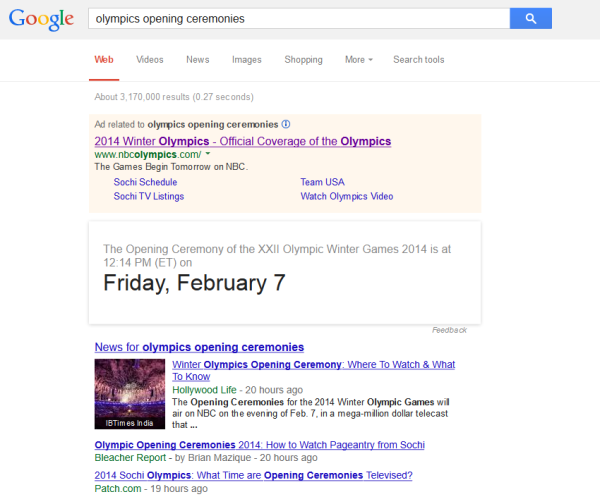
Yahoo Takes The Bronze, Barely.
Yahoo should come home empty handed. There was not one useful result, organic or paid, in the Yahoo SERPs — not even the content from Yahoo’s own properties that had showed up in Bing’s results. The only seemingly relevant link was to the NBC Olympics site, which we know isn’t helpful.
Searching again today, this time adding “start time” to the query, Yahoo did return a relevant link to an optimized Huffington Post article about the Opening Ceremonies start time. But, then I noticed the auto-suggest: other events were getting appended when I added “start time” to the query.
We can expect the search experience for Olympics queries to evolve as the games kick off. Starting today, Bing has begun showing the full daily schedule on “Olympics” queries and even specific event schedules by queries such as “snowboarding” as well as other Olympic-specific search features.
Update: And in the spirit of seeing these listings evolve, Yahoo has made a big improvement the very next day. It now shows the live and broadcast time at the top of the SERP.
Contributing authors are invited to create content for Search Engine Land and are chosen for their expertise and contribution to the search community. Our contributors work under the oversight of the editorial staff and contributions are checked for quality and relevance to our readers. The opinions they express are their own.
Related stories
